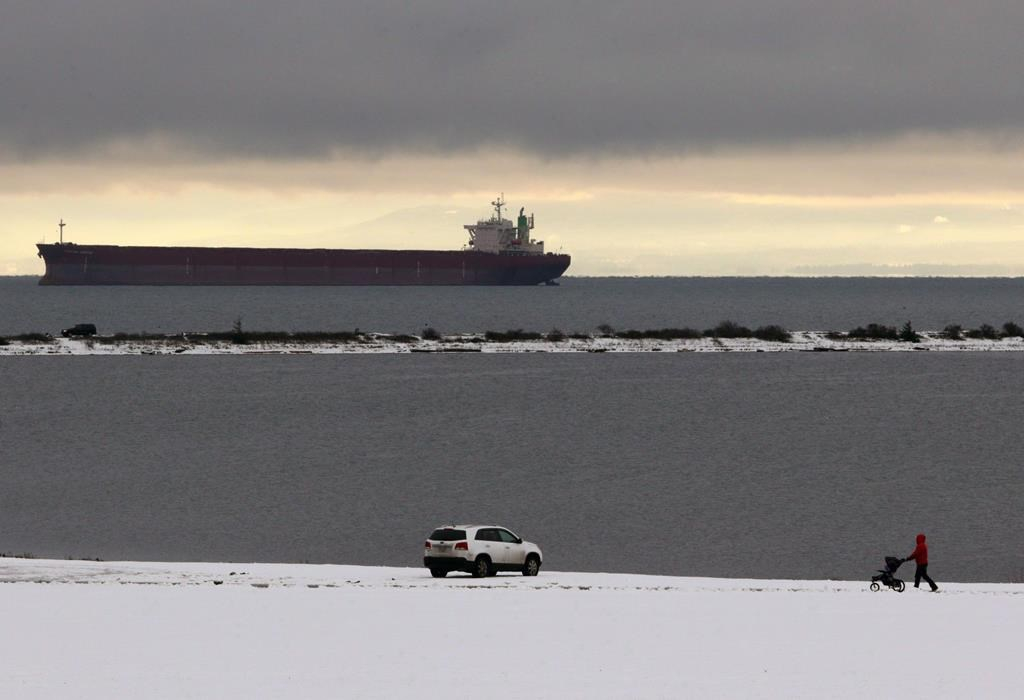Support strong Canadian climate journalism for 2025
Leaders from several north-coast B.C. First Nations say if the Senate doesn't approve a bill barring super-sized oil tankers from the region, their thriving but fragile marine-based economies will die.
The bill is already a sore point between the federal government and Alberta. Indigenous communities also disagree on the ban: nearly three dozen First Nations are behind a $16-billion pipeline proposal that has no future if supertankers can't carry Fort McMurray oil away from the port in Prince Rupert, B.C.
Marilyn Slett, chief of the Heiltsuk Nation and president of the Coastal First Nations alliance of nine B.C. bands, said Tuesday that coastal B.C. nations have been speaking out against tankers in their waters for decades.
"We are salmon people, we are ocean people and our way of life depends on a healthy ecosystem," she said.
That ecosystem could be destroyed by a single major oil spill, the risk of which she says is significant if massive oil tankers are not legally banned from the narrow passages along the B.C. coast between the north tip of Vancouver Island and the Alaska border.
"If we experienced a major oil spill we would be finished," said Slett.
Garry Reece, the hereditary chief of the Allied Tribes of Lax Kw'alaams, said coastal First Nations have a multimillion-dollar marine economy that would be upended if an oil tanker ran aground.
"We can't afford to let anything happen like having an oil spill," he said. "All the resources we have in our area would be gone."
Slett led a delegation of B.C. chiefs to Ottawa this week to lobby senators to pass bill C-48, which would enact into law a voluntary moratorium on major tankers that has been in place since the 1980s. The bill would allow for liquid natural gas to be transported on big tankers through the region, but crude oil and related products could only be carried in amounts less than 12,500 tonnes, or about 90,000 barrels.
Prime Minister Justin Trudeau ordered a ban on supertankers off the north coast of British Columbia just days after being sworn into office in November 2015, though legislation to carry out the order wasn't introduced until May 2017. Bill C-48 took a year to pass the House of Commons and is now in the Senate, where it is getting a mixed ride.
Last week Conservative Sen. David Wells compared banning supertankers from the northern B.C. coast to prevent oil spills to banning cars from highways to prevent accidents.
"We can ensure no one dies on highways by shutting down highways," he said. "Does that mean we should shut down highways? Of course not. Should we put procedures in place to ensure road safety? Of course."
He said the ban is just another way Ottawa is "choking off" responsible resource development in this country.
Liberal Senator Jane Cordy, however, is in favour of the bill, noting all it is doing is setting into law a voluntary ban that has been in place since 1985.
Moreover, the concept behind Bill C-48 is similar to the concept behind national parks or marine protected areas, she said Monday.
Slett said her community has already seen what can happen after even a relatively small spill. Her community hasn't been able to have a clam fishery for two years, after an American-owned tug and barge ran aground in October 2016, spilling about 110,000 litres of diesel.
"It was a matter of minutes before our beaches were contaminated and the damage was done," she said.
She said if a diesel spill from a sunken barge can cause that much damage and take years to clean up, a major oil spill would be catastrophic.





Comments